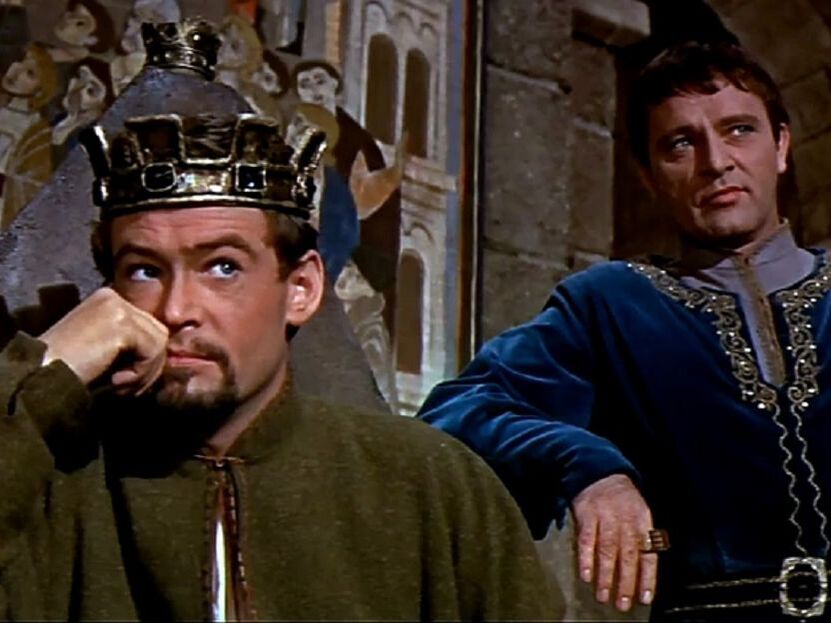|
The true story of the close friendship turned bitter rivalry between King Henry II of England and Thomas Becket, Archbishop of Canterbury.
BIOPIC/DRAMA
|
Becket (1964)Directed by Peter Glenville
Written by Edward Anhalt Starring Richard Burton, Peter O'Toole, John Gielgud, Donald Wolfit, David Weston, Martita Hunt Based on the stage play by Jean Anouilh and Lucienne Hill Oscar Wins - Best Adapted Screenplay Oscar Nominations - Best Picture, Best Actor (Richard Burton), Best Actor (Peter O'Toole), Best Supporting Actor (John Gielgud), Best Director, Best Cinematography, Best Art Direction, Best Costume Design, Best Sound, Best Film Editing, Best Original Score (Laurence Rosenthal) |
I had never heard the story of Thomas Becket and his unorthodox relationship with King Henry II. But I knew that an epic drama starring Richard Burton and Peter O'Toole was something I couldn't pass up. It turns out that Henry II might've been harboring secret romantic feelings for his best friend, which made it hurt much worse when Becket chose God over his King. This film tells the story of how that friendship dissolved because of King Henry II's arrogance and selfishness, and how Thomas Becket inadvertently found his true calling as a man of the cloth.
Becket is played fantastically by Richard Burton, who acts as a perfect moral counterbalance to Peter O'Toole's psychotic Joffrey-esque Henry II. The two legends have fantastic chemistry, and they keep this film from ever being boring despite its hefty runtime. It's such a fascinating story of how the crown of England struggled to maintain power over the Church of England. At the time, Henry II was only three generations from William the Conqueror, the Norman invader who conquered England and the Saxons. So, there was still palpable tension between the Normans and Saxons, and the Church took advantage of that to try and undermine Henry II's power whenever they could. So, Henry II instilled his best friend Thomas Becket as the Archbishop of Canterbury, but Becket took the job seriously and went against the king's will, choosing God's instead. The fact that Peter Glenville was willing to imply homosexual feelings in a 1964 English drama really elevates this film from typical biopic fare at the time. Homosexuality was illegal at the time of filming, but Glenville and writer Edward Anhalt refused to compromise the story of these two troubled men. The final product is a film that I think has been overlooked for the past five decades as a true gem. |
